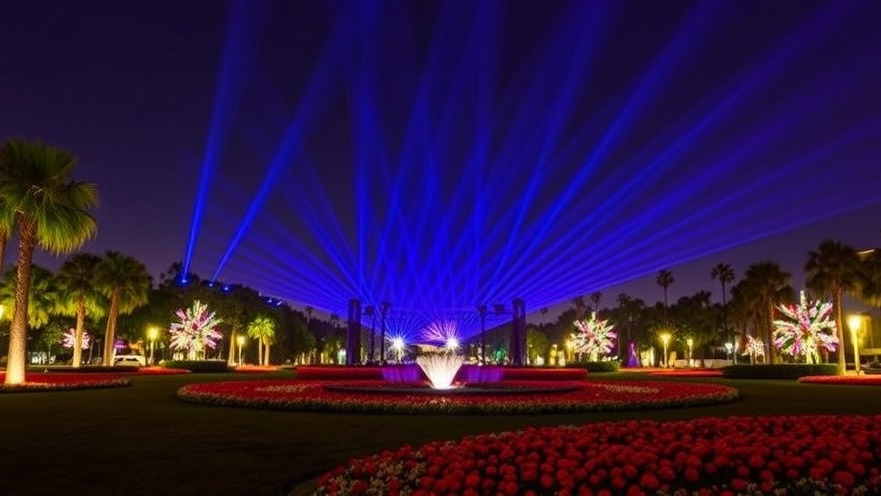
The Controversial Light Show at Huntington Central Park
A grassroots movement is rising in Huntington Beach, fueled by local concerns over a planned light show at Central Park. Dubbed the Symphony of Flowers, this ambitious outdoor event aims to illuminate the park with over 500,000 LED lights choreographed to classical music, but not everyone is on board. A local group, Protect HB, has filed a lawsuit against the city, claiming the approval process did not adequately consider the environmental impact.
Environmental Concerns Take Center Stage
The lawsuit highlights significant worries from Protect HB about the potential harm to local wildlife. These fears are not simply based on anecdotal evidence; they reflect a broader dialogue about the intersection between community interests and environmental stewardship. Cathey Ryder, a co-founder of Protect HB, stated, "Central Park is one of the last remaining open spaces in our community. This project would close off public access to over six acres of cherished parkland for most of the year, disrupting sensitive wildlife habitat— including that of bald eagles and monarch butterflies." This sentiment echoes the voices of many local residents who cherish the park's natural beauty.
Response from City Officials and Project Benefits
In defense of the project, city officials point to the financial benefits of the event. The Symphony of Flowers is projected to attract thousands of visitors weekly and generate at least $150,000 in annual revenue for the city by sharing ticket and parking proceeds. This argument brings to light a common debate in urban planning: the balance between tourism-driven economic growth and the preservation of localized ecology.
The Role of State Environmental Law
The crux of the lawsuit hinges on the compliance with the California Environmental Quality Act (CEQA), which mandates that public projects undergo thorough environmental reviews. Protect HB argues that the city failed to consult the California Department of Fish and Wildlife, potentially bypassing essential data on the park's ecosystem. In their letter dated March 7, CDFW officials asserted that they weren’t included or consulted in the city’s decision-making process, raising troubling questions about governance.
Public Engagement and Future Outlook
The lighting show, scheduled to run for six months annually from Thursday to Sunday evenings, seeks to host approximately 900 spectators per performance. While some community members view it as a way to invigorate the locality with cultural experiences, others argue it risks overshadowing the natural qualities of Huntington Central Park.
This situation serves as a reflection of broader societal trends where development and conservation often clash. Engaging local residents in decision-making remains crucial for sustainable urban development. As debates unfold, it will be essential for city officials to address the concerns raised and find a way that accommodates both economic interests and ecological integrity.
Moving Forward: The Community's Voice Matters
As this lawsuit progresses, it will undoubtedly spotlight the importance of community voices in shaping local policies. Residents are encouraged to actively participate in discussions about such projects to ensure that their values are represented and that future developments respect the irreplaceable local environment.
For those in Huntington Beach, this case highlights a critical turning point in how urban developments can impact cherished spaces. The outcome could pave the way for new standards related to public engagement and environmental preservation, ensuring the community continues to thrive alongside its natural resources. Be sure to stay informed and involved as these proceedings unfold!
 Add Row
Add Row  Add
Add 




Write A Comment